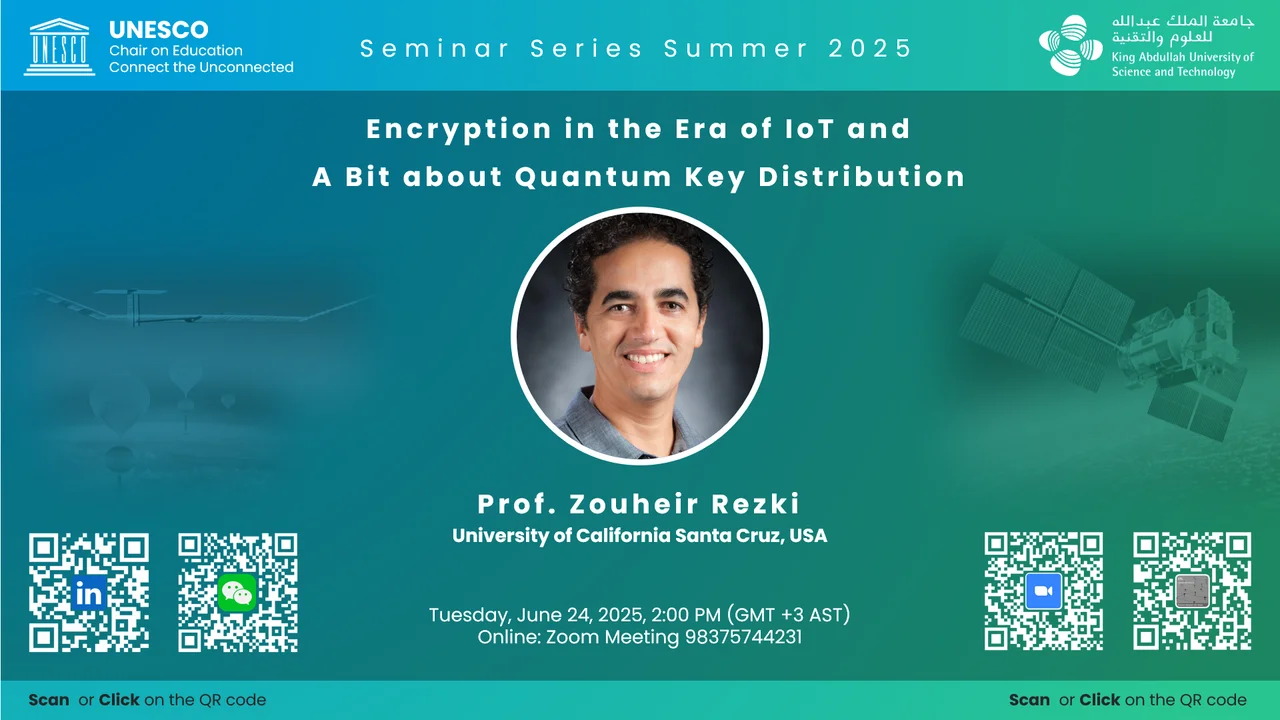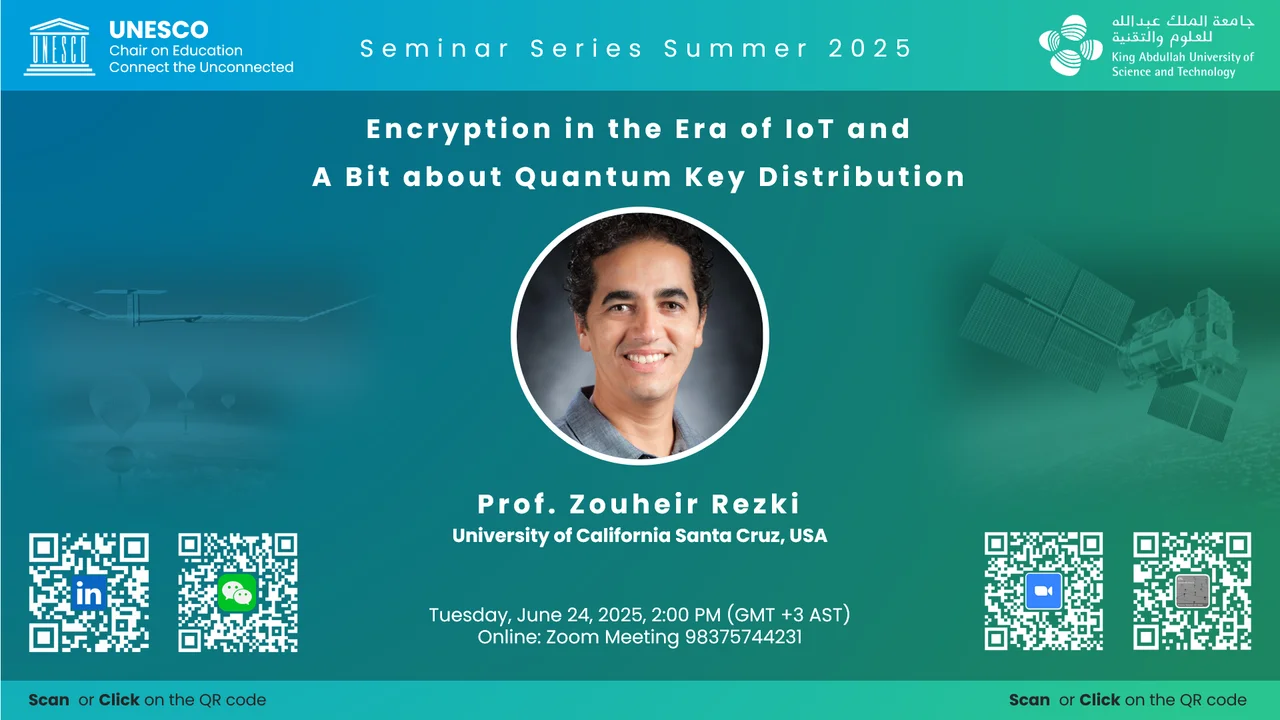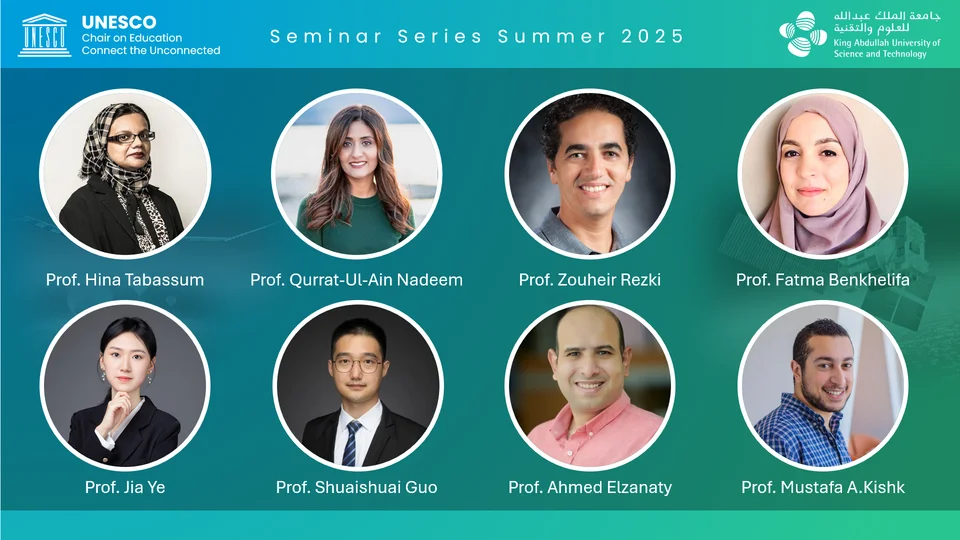
Encryption in the Era of IoT and a bit about Quantum Key Distribution
Overview
In the bounded storage model introduced by Maurer, the adversary is computationally unbounded and has a bounded storage capacity. In this model, information-theoretic secrecy is guaranteed by using a publicly available random string whose length is larger than the adversary storage capacity. The protocol proposed by Maurer is simple, from an implementation point-of-view, and efficient, from the perspective of the initial secret key size and random string length. However, he provided the proof of the security for the case where the adversary can access a constant fraction of the random string and store only original bits of the random string.
In the first part of this talk, we present a new proof of the security of the protocol proposed by Maurer for the general bounded storage model, i.e., the adversary can access all bits of the random string and store the output of any Boolean function on the string. We reaffirm that the protocol is absolutely semantically secure in the general bounded storage model.
In the second part of the talk, we provide an encryption protocol for storing highly confidential data of a user on a public cloud storage. We show that the protocol provides unconditional security. More specifically, we prove that the protocol is semantically secure against an all-powerful adversary with unbounded computational power and storage capacity who has complete access to the communication line. The provided protocol is very simple; it is implemented by exploiting finite group modular addition and XOR operations. The protocol provides a high security gain defined as the ratio of the amount of data (in bits) that can be securely stored on the public cloud and the number of secret bits required to be stored at the user end.
In the third part of the talk, we propose a novel quantum key distribution (QKD) protocol that employs entanglement swapping to facilitate secure key generation. The protocol encodes a three-bit symbol into three entangled qubit pairs, constructed by randomly grouping six qubits into three Bell states. We analyze and prove the protocol’s security under the intercept-resend attack model. Additionally, we extend the security analysis to general eavesdropping attacks, deriving a lower bound on the secrecy rate and identifying the QBER threshold below which the protocol yields a positive key rate. Remarkably, the proposed scheme exhibits enhanced secrecy thresholds compared to existing QKD protocols.
Presenters
Zouheir Rezki, University of California Santa Cruz, USA
Brief Biography
Zouheir Rezki is an Associate Professor in the Electrical and Computer Engineering Department at the University of California Santa Cruz (UCSC). Before joining UCSC in July 2020, he has been an Assistant Professor at the University of Idaho (August 2016 - June 2020). He received his PhD from University of Montreal, Polytechnique Engineering School in 2008.He is a 2020 (2021 - 2026) NSF CAREER Awardee. During his appointment at UBC, he received the ``Fonds Quebecois de la recherche sur la nature et les technologies'' Postdoctoral Research Fellowship Grant for research on Cognitive Radio Networks. He is a Senior Member of IEEE (2013 - present). He has been an Editor of IEEE Wireless Communications Letters (2014 - 2017) and served as a Symposium Chair/Co-Chair of many IEEE flagship conferences in communication, signal processing, and networking. His current research covers security and privacy of data networks, Machine-Learning-Based Design of communication, classification and forecasting systems and quantum secret key sharing.

